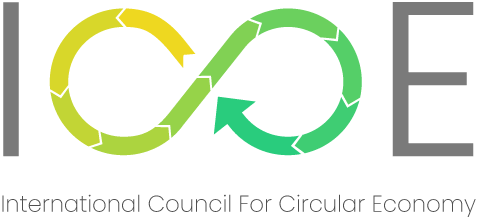Technical Committees
ISO/TC 323
Circular economy

International Standards help companies ensure that their products align with principles like durability, reusability, upgradability, or repairability. They foster consumer trust in shared, recycled, repaired or upcycled goods and components as well as relevant services, and enable collaboration between economic partners.
3 standards have been published
Circular economy — Vocabulary, principles and guidance for implementation
ISO 59004 is a part of the ISO 59000 family of standards, specifically designed to foster a shift towards a circular economy. This standard provides comprehensive guidance applicable to any type of organization. It includes defining key terms and concepts, outlining a vision for a circular economy, elucidating core principles, and offering practical guidance for actionable steps towards sustainability. The standard aims to support organizations in contributing to the United Nations Agenda 2030 for Sustainable Development by facilitating a transition to a circular use of resources.
Why is ISO 59004 important?
The linear model of the global economy—characterized by extraction, production, use, and disposal—has led to significant environmental challenges, including resource depletion climate change and biodiversity loss. ISO 59004 addresses these issues by advocating for a circular economy model, which emphasizes the sustainable management and renewal of natural resources.
Benefits:
- Deliver more sustainable and ambitious solutions.
- Improve relationships with stakeholders.
- Engage in more effective and efficient fulfillment of voluntary and legal obligations.
- Contribute to climate change mitigation and adaptation.
- Increase resilience against resource scarcity and other environmental, social, and economic risks.
Circular Economy — Guidance on the transition of business models and value networks
ISO 59010 provides guidance for organizations wishing to transition their value creation models and networks from a linear to a circular framework. This standard focuses on business-oriented strategies to implement circular economy practices at both organizational and inter-organizational levels. It complements ISO 59004 by offering more detailed guidance on assessing current value creation models, mapping value chains and value networks, and developing strategies for circularity. ISO 59010 is designed to help organizations make this transition effectively, contributing to sustainable business practices and a resilient global economy.
Why is ISO 59010 important?
ISO 59010 is vital as it guides organizations in transforming their linear value creation models to circular ones, crucial for sustainable development. It addresses the pressing need to mitigate environmental risks, manage resource depletion, and respond to regulatory and consumer pressures for sustainability. For businesses, it outlines a structured approach to integrate circular economy principles, enhancing resource efficiency and creating economic opportunities through innovation and resilience.
Benefits
- Improved resource efficiency and waste reduction
- Enhanced adaptability to regulatory and market changes
- Better alignment of business practices with global sustainability goals
- Increased competitive advantage and stakeholder trust
Circular economy — Measuring and assessing circularity performance
ISO 59020 sets forth requirements and guidance for organizations to measure and assess their circularity performance within defined economic systems. This document aims to standardize the process by which organizations collect and calculate data using mandatory and optional circularity indicators, ensuring consistent and verifiable results. It provides a structured framework for setting system boundaries, selecting appropriate indicators, and interpreting data to evaluate the circularity performance at multiple levels—from regional and inter-organizational to organizational and product-specific levels.
Why is ISO 59020 important?
ISO 59020 is crucial in transitioning towards a more circular economy by providing a clear and structured methodology for measuring and assessing circularity performance. It helps organizations identify how effectively they are minimizing resource use and optimizing the circular flow of materials. This standard not only aids in achieving environmental sustainability but also supports the broader goals of sustainable development by aligning with the United Nations Agenda 2030 and the Sustainable Development Goals (SDGs). For businesses, it offers a way to quantify progress and demonstrate commitment to sustainable practices, enhancing transparency, accountability, and stakeholder trust.
Benefits
- Provides a clear framework for measuring circularity performance.
- Helps organizations align with global sustainability goals
- Enhances transparency and accountability in environmental reporting
- Supports strategic decision-making for sustainable resource management
